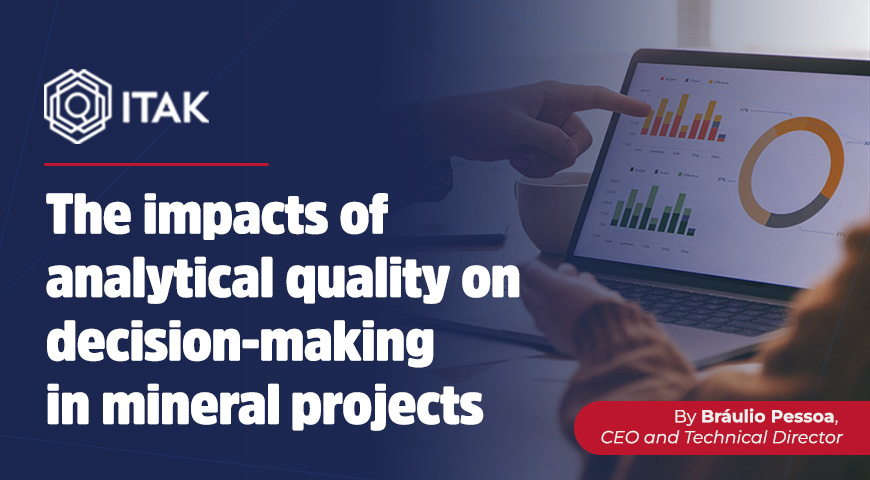The accuracy and reliability of analytical data are essential for decision-making in mineral projects. An error in chemical analysis can result in millions in losses, from an inadequate definition of the geological model to the unfeasibility of a project. But how can analytical quality be guaranteed, and what are the direct impacts of this factor on mining projects?
Mining is based on data quality.
Mining is a data-driven activity. Every decision, from feasibility through exploration to mine closure, depends on correctly interpreting geochemical and mineralogical information. When data contains errors or is unreliable, risks increase exponentially. Errors in analysis can lead to underestimations or overestimations of mineral reserves, directly affecting the project’s economic viability.
The role of Certified Reference Materials in analytical reliability
Certified Reference Materials (CRM) play a fundamental role in the quality control of mineral research and laboratory analyses. For mineral research, they identify problems in analyses, preventing incorrect sample results from being used in estimates. In laboratories, they ensure that equipment and analysis methods are correctly calibrated, increasing the accuracy and reliability of measurements. When they correctly use certified reference materials, laboratories can validate their processes and ensure compliance with international standards.
Direct impacts on decision-making
1. More accurate geological modelling – Reliable analytical data ensures a better understanding of mineral distribution, creating more realistic and efficient models.
2. Optimised mining planning – Correctly defining mineral reserves prevents waste of resources and improves project profitability.
3. Reduction in operating costs – Accurate analyses prevent rework, minimize losses, and reduce reagent consumption and energy waste.
4. Environmental and regulatory compliance – Analytical errors can result in non-compliance with environmental standards and compromise obtaining licenses.
5. Better relationship with investors – Technical reports based on reliable data increase the company’s credibility in the market and facilitate investment capture.
How to ensure reliable analyses?
● Use of Certified Reference Materials: Essential for monitoring analyses, calibration and equipment validation.
● Quality Assurance and Control Programs (QA/QC): Implementation of rigorous practices for constant monitoring of results using CRM and other quality tools.
● Continuous training of professionals: Qualified teams are less prone to operational errors.
● Audits and interlaboratory tests: Comparison of results between laboratories to ensure high-quality standards.
Analytical quality is an essential pillar for the success of mineral projects. Investing in good laboratory practices and using Certified Reference Materials is a competitive advantage that reduces risks and increases data reliability. Companies prioritizing analytical excellence have greater security in strategic decisions, optimize costs and ensure greater sustainability for their ventures. If you work in the minerals industry, how does your company ensure the reliability of your analytical data? Share your experience in the comments!
